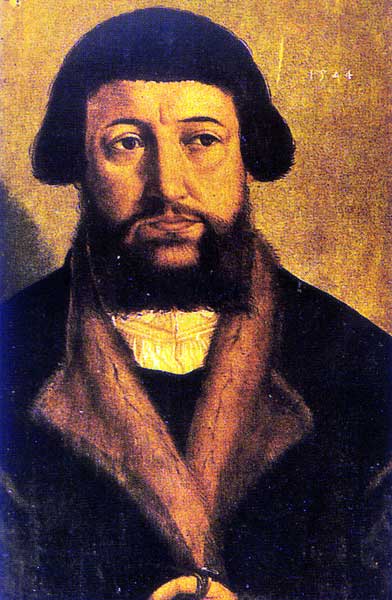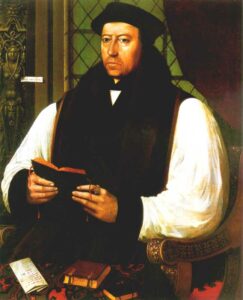My mother’s German roots remained a mystery to me for many decades and, if you had told me a year ago that I would by now have traced my German line back further than any other of the many I have worked on over the years, I would have laughed at the thought! After very quickly tracing back my Scholl ancestors in this country, I had been stuck at around 1850 which was when my ancestor Gottlieb Frederick arrived from Germany – according to the censuses he was born in Wurttemberg. I had also found a Charles David Scholl over here who, for a number of circumstantial reasons, I thought must be closely related to him.
Not so long ago German records became available on FamilySearch and Ancestry.com, and I quickly found both Gottlieb and Charles, who turned out to be brothers born in Backnang, Wurttemberg. However, I do not speak German and, even if I did, I would have found deciphering the old records extremely difficult without a bit more help than the various “How To…” books in my possession could give.
Then just over a year ago I zoomed into a meeting organised by the Abingdon branch, where James Thornber was talking about researching German ancestry. At the end of the talk he briefly mentioned the existence of the Ortsfamilienbuch (the family history book) in Wurttemberg. I had not heard of these, so trawled through the internet and found that some books were online and some, including those for Backnang, were unfortunately only printed books. Although the author was given, there was no clue as to how to buy the books.
I asked the Anglo-German Family History Society, of which I am also a member, for guidance – they advised me to get in touch with the Verein fur Familienkunde in Baden-Wurttemberg e.V. (www.vfkbw.de). A very quick reply from a Dr Jungius suggested I should contact Dr Trefz at Stadarchiv Backnang.
This I did, asking if I could possibly order 2 volumes of the Backnang books and also requesting payment details. I had no reply but, just a few days later, to my surprise a heavy package arrived with invoice inside – very trusting! I then had the fun of trying to pay internationally online which was a first for me, but proved relatively easy as most of the details I needed were efficiently highlighted on the invoice.
The books weren’t cheap – including postage they cost €85, but well worth it for where they led me. And they are amazing – beautifully printed and bound hard-backs. I gather that people spend a long time going through the records and producing volumes with genealogical histories of all the families in a town. I quickly found my Scholls and went back several generations, with the entries in the books enabling me to make sense of the original records I had found on the internet – so, as a good genealogist, I had my own proof!
The Scholls led me to my Osiander ancestors, who were not in Backnang but in towns fortunately covered by the Ortsfamilienbuch online – and I was now back to a point where there were several generations of leading theologians whose lives were all very well documented in numerous sources I found on the internet (some written at the time). Having several sources meant it was easy to trace back without the need for original registers, which I couldn’t always find.

I am fairly confident that I am now back to the early 15th century in both lines and it is still work-in-progress. I discovered that three ancestors – 12 x great-grandfather Andreas Osiander the Elder, born in 1498, his son Lucas Osiander the Elder, and his grandson Andreas Osiander the Younger – were so eminent that they each have their own Wikipedia pages which even include their portraits. Andreas the Elder led the Nuremberg Protestant reforms, as a result of which he met and befriended Thomas Cranmer when Thomas was in Germany as Henry VIII’s Ambassador at the Court of the Holy Roman Emperor, Charles V – unsuccessfully lobbying for the annulment of Henry’s marriage to Catherine of Aragon.

While there, Thomas met and secretly married Andreas’ wife’s niece Margarete (my 1st cousin 13 times removed) in 1852, with Andreas officiating. Andreas and Margarete must inevitably have had influence on the thinking of Thomas at this crucial period in his life. When he was unexpectedly summoned back to England the following year to be Archbishop of Canterbury, he had to leave his bride behind; she eventually came to England and lived secretly until the marriage was able to be made public after Henry VIII had died. But that’s another story…
My humble Scholl baker immigrant ancestor would have been amazed at his illustrious antecedents, as am I!
You never know where family history will lead you – thank you, James, for leading me down this particular path.
Online OSBs can be found at https://www.online-ofb.de/
The printed books can be found through http://wiki-de.genealogy.net/Kategorie:Ortsfamilienbuch
